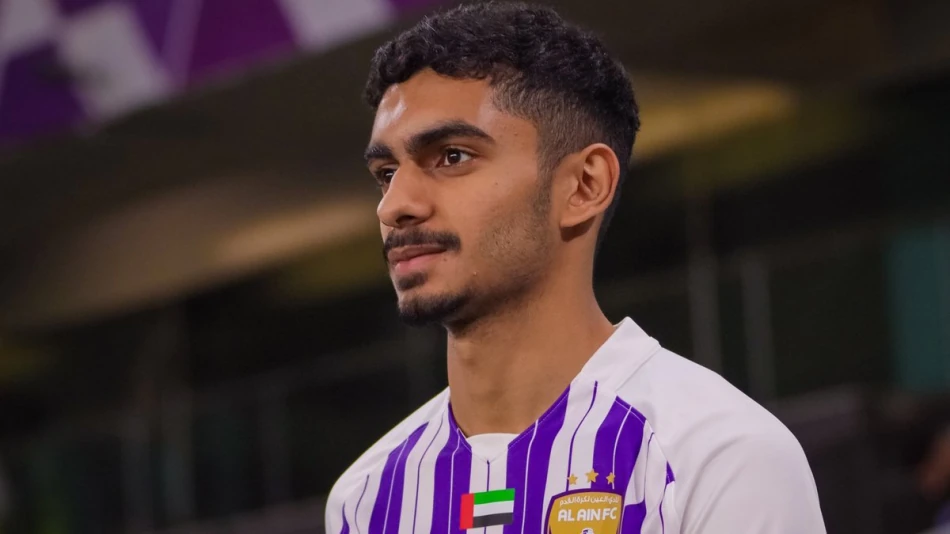
Al-Ain's Hero: Mohammed Abbas Shines in Club's Cup Campaign
Al Ain Survives Cup Scare Despite Missing Ten Key Players
UAE football giants Al Ain narrowly avoided an early exit from the Professional League Cup, advancing to the quarterfinals on penalties against lower-division Kalba despite fielding a makeshift lineup missing ten crucial players due to international duties and injuries. The dramatic 3-1 penalty shootout victory highlights both the depth challenges facing top-tier clubs and the growing competitiveness of UAE domestic football.
A Tale of Two Halves: Regulation Struggle, Penalty Heroics
Al Ain's path to the quarterfinals was far from smooth. After a 1-1 draw in the first leg, the "Boss" – as Al Ain is known locally – managed only a goalless draw through 90 minutes against their lower-division opponents. The match exposed the vulnerability of even established clubs when stripped of their star players, a scenario becoming increasingly common in modern football's congested calendar.
Midfielder Mohammed Abbas, speaking after the match, acknowledged the unusual circumstances: "With so many absences in our ranks, we worked hard for a full week because this lineup was playing together for the first time. Everyone stepped up and gave everything they had."
Substitute Goalkeeper Emerges as Unlikely Hero
The match's turning point came with the introduction of substitute goalkeeper Mohammed Busanda, who Abbas praised as "the hero" for his penalty shootout performance. Busanda's late entry and subsequent penalty saves demonstrate how cup competitions can create unexpected opportunities for fringe players to shine on bigger stages.
This scenario mirrors similar instances across global football, where backup goalkeepers have become cup heroes – from Liverpool's Caoimhin Kelleher in European competitions to Chelsea's Kepa Arrizabalaga's penalty specialist role under Thomas Tuchel.
The Growing Challenge of Squad Rotation in UAE Football
Al Ain's predicament reflects a broader trend in UAE football, where clubs must balance domestic competitions with AFC Champions League commitments and international player call-ups. The club's ability to advance despite missing ten key players suggests either strong squad depth or the narrow margins that separate professional levels in regional football.
Abbas's admission that the team "wasted many chances" during regular time but found success in the penalty lottery underscores how cup competitions can reward resilience over pure talent. This unpredictability makes domestic cups valuable for developing squad players and maintaining competitive balance.
What This Means for Al Ain's Season
While advancing to the quarterfinals keeps Al Ain's trophy hopes alive, the performance raises questions about squad management during busy periods. The club's reliance on penalty shootouts against lower-division opposition suggests potential vulnerabilities that stronger quarterfinal opponents might exploit.
However, cup runs built on gritty performances and squad rotation often build valuable momentum. Al Ain's experience of grinding out results with depleted lineups could prove crucial as the season progresses and player availability fluctuates.
The Professional League Cup continues to serve its purpose as a platform for emerging talent and a test of institutional depth – qualities that separate truly successful clubs from those dependent on individual brilliance.
Most Viewed News

 Sara Khaled
Sara Khaled






